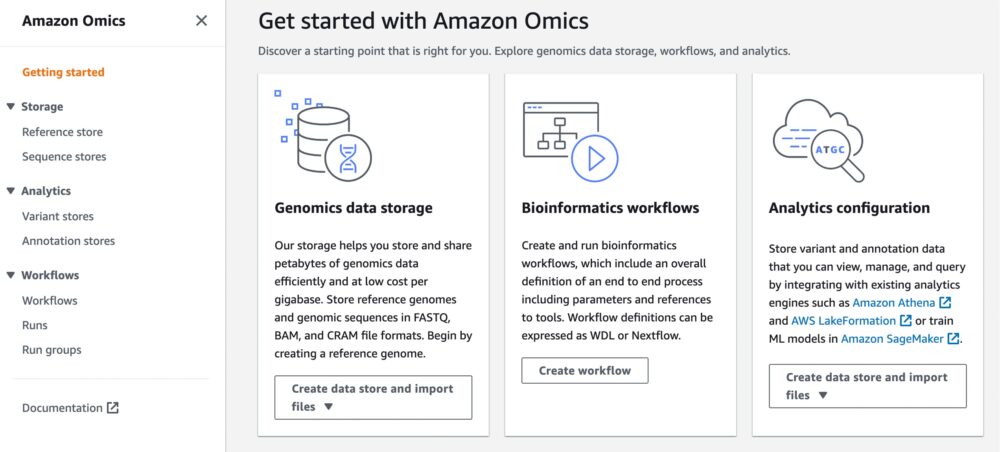 At AWS Re:Invent in Las Vegas, Amazon (Nasdaq:AMZN) subsidiary AWS launched Amazon Omics to help researchers sift through genomic, transcriptomic and proteomic data.
At AWS Re:Invent in Las Vegas, Amazon (Nasdaq:AMZN) subsidiary AWS launched Amazon Omics to help researchers sift through genomic, transcriptomic and proteomic data.
The volume of such data is exploding. The National Human Genome Research Institute estimates that researchers will need approximately 40 exabytes to store genome-sequence data generated internationally by 2025. One exabyte equates to one billion gigabytes. A single human genome alone has around three billion base pairs of DNA.
“Amazon Omics is actually the first managed service from a cloud provider that invests in the core problems of storing, transforming, and analyzing omics data,” said Dr. Taha Kass-Hout, vice president of health AI and chief medical officer at AWS.
AWS notes that Amazon Ommics is a cloud-solution customers can use as opposed to an API call. “And because it’s a managed service, and not a collection of open-source software, customers have all the advantages of API control, no infrastructure to deploy, and all is backed by an SLA,” Kass-Hout noted. “There are also new capabilities in Amazon Omics, for example, the workflow engine supports WDL and Nextflow workflow languages, and the analytic store supports both variants (patient differences) and annotations (scientific labels for points on the genome). So Amazon Omics is differentiated at the macro level (managed service, comprehensive offering [store, transform, analyze], no infrastructure to manage) and also at the micro level (capabilities within each component).”
The Amazon Omics platform has data centers in the U.S. East (N. Virginia), U.S. West (Oregon), Europe (Ireland), Europe (London), Europe (Frankfurt) and Asia Pacific (Singapore) regions.
Amazon’s rival Microsoft (Nasdaq: MSFT) has similar offerings known as Microsoft Genomics and Microsoft Immunomics on its Azure cloud.
AWS notes that with Amazon Omics, it is possible to import and standardize petabytes of data to facilitate analytics with a few clicks of the Amazon Omics console.

A screen shot of Amazon Omics. [Image courtesy of Amazon]
The system enables end users to store, query and analyze genomic, transcriptomic, and other omics data. The platform supports the storage of petabytes of genomics data. It can be used with FASTQ, BAM and CRAM file formats.
In addition, the platform allows users to create and execute bioinformatics workflows while defining parameters and references to tools.
The analytics configuration can be used to store variant and annotation data. In addition, it can integrate with Amazon Athena, AWS LakeFormation and Amazon SageMaker.
AWS also announced its beta/launch customers, which include the Children’s Hospital of Philadelphia, G42 Healthcare, Ovation, Element Biosciences, Ultima Genomics, BioTeam and Diamond Age Data Science.
At the event in Las Vegas, Amazon also announced the launch of AWS Supply Chain and a chip that gives the company high-performance computing capabilities.
Today, Amazon shares fell 1.63% to $92.42. About a year ago, its shares were trading at around $175.
Filed Under: Drug Discovery and Development, Genomics/Proteomics





Tell Us What You Think!
You must be logged in to post a comment.